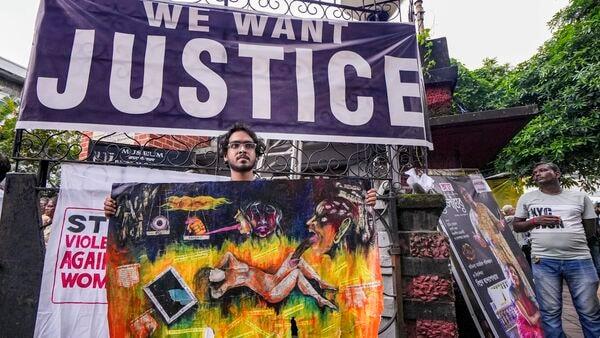
Kolkata Doctor Rape-Murder Case: What Is Polygraph Test, Which CBI Wants Accused Sanjay Roy To Undergo?
So, what are polygraph tests, how do they help in the probe, and are they admissible in court?
Also Read | Kolkata doctor rape case: CBI receives nod for polygraph test | 10 updates What is a polygraph test?A polygraph test, sometimes referred to as a lie detector test, is a procedure that measures and records several physiological indicators such as blood pressure , pulse, respiration, and skin conductivity while a person is asked and answers a series of questions.
The polygraph test is based on the assumption that changes in physiological responses like heartbeat , breathing, and sweating are triggered when a person is lying, different from what they would be otherwise. In other words, deceptive answers will produce physiological responses that can be differentiated from those associated with non-deceptive answers.
These physiological responses can be measured by instruments like cardio-cuffs or sensitive electrodes attached to the person, and variables such as blood pressure, pulse, blood flow, etc., are measured as questions are put to them. The rate and depth of respiration are measured by pneumographs wrapped around a subject's chest. Cardiovascular activity is assessed by a blood pressure cuff. Skin conductivity (called the galvanic skin or electrodermal response) is measured through electrodes attached to a subject's fingertips.
Also Read | Kolkata rape: Autopsy report reveals 14 extensive injuries over bodyEach response is assigned a numerical value to determine whether the person is telling the truth, deceiving, or uncertain.
Are polygraph tests accurate?Polygraph tests have never been proven scientifically 100% accurate. However, in several countries, polygraphs are used as an interrogation tool with criminal suspects or candidates for sensitive public or private sector employment. According to the American Psychological Association,“There is no evidence that any pattern of physiological reactions is unique to deception. An honest person may be nervous when answering truthfully, and a dishonest person may be non-anxious. Also, there are few good studies that validate the ability of polygraph procedures to detect deception.”
Also Read | Kolkata doctor rape case: TMC's Sukhendu Sekhar Roy seeks protection from arrestIn recent times, probing agencies have been seeking permission from courts to employ these tests on the accused, as they are sometimes seen as a“softer alternative” to the 'third-degree treatment' to extract the truth.
Legal requirements for polygraph testsThe NHR released guidelines regarding administering the Polygraph Test to suspects in 2000. According to these guidelines: The polygraphy test should be administered with the consent of the accused. The consent given by the accused must be recorded before a judicial magistrate. The accused who has been in questioning should also have the knowledge and should know clearly that the words spoken by him during the polygraphy test are just the statements made to police, but not confessions.
Are polygraph tests admissible as evidence in Court?The results of the polygraph tests are not admissible as evidence in court as the test results cannot be considered to be“confessions”. In Selvi vs State of Karnataka (2010), the Supreme Court ruled that such tests violate the constitutional rights to personal liberty and protection against self-incrimination.
Also Read | Kolkata rape case: 'My daughter was cremated in hurry,' claims victim's fatherPolygraphy tests or any interrogation follow the process of extracting the information from the accused, which may go against him. In this process, the accused provides information which can be used against him in the court of justice. As we all know, a person cannot be a witness against himself according to Article 21(3) of the Indian Constitution . Hence, the results of the polygraphy test go against this law. So, this cannot be taken as evidence in the court of justice.
However, according to the Supreme Court verdict in 'Selvi vs State of Karnataka' (2010), any information or material subsequently discovered with the help of such a voluntarily-taken test can be admitted as evidence. Thus, any murder weapon or evidence recovered at the location revealed by the accused during the test can be used as evidence, not the statement.
Legal Disclaimer:
MENAFN provides the information “as is” without warranty of any kind. We do not accept any responsibility or liability for the accuracy, content, images, videos, licenses, completeness, legality, or reliability of the information contained in this article. If you have any complaints or copyright issues related to this article, kindly contact the provider above.






















Comments
No comment